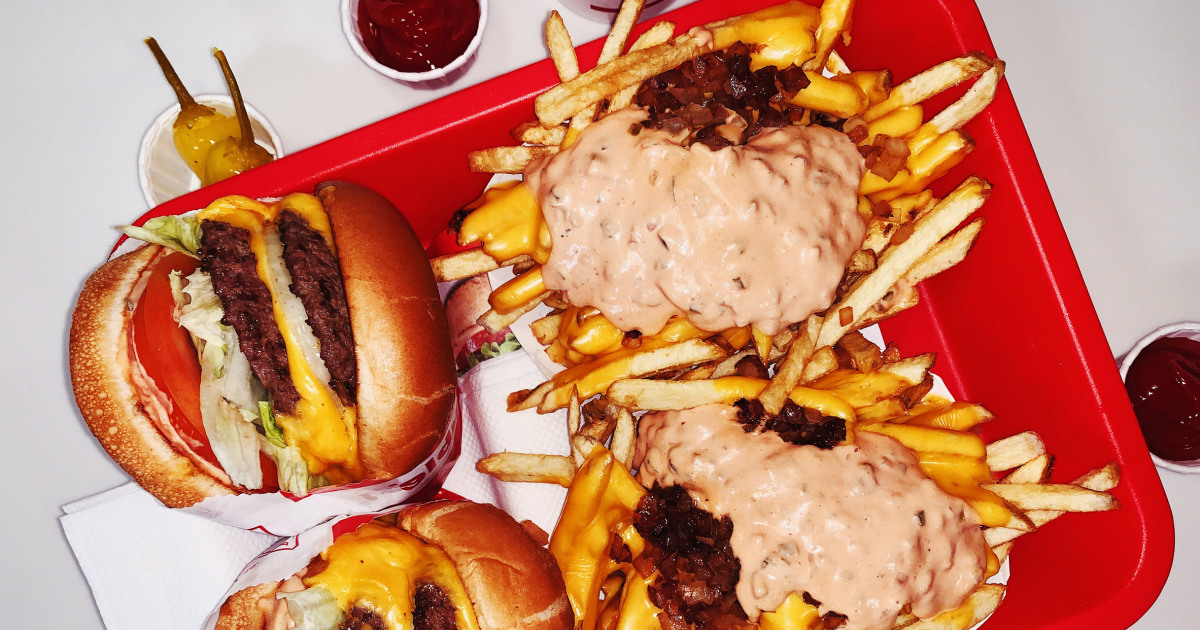
Ingrid Vilorio, a cook at a Jack in the Box restaurant in Hayward, California, is getting a raise this week, courtesy of a state law that took effect Monday boosting the wages of fast-food workers in the state to a minimum of $20 an hour. The extra money, she told me, would not go for luxuries. It would, instead, be used for groceries to feed her 9-year-old son.
The extra money, she told me, would not go for luxuries. It would, instead, be used for groceries to feed her 9-year-old son.
Sounds great, no? Not according to a lot of pundits, who are quick to proclaim a jobs disaster for the state’s half a million fast-food workers. Consider the USA Today columnist Ingrid Jacques who tweeted out a picture last week of self-order kiosks at a McDonald’s at the Minneapolis-St. Paul International Airport with the words “This is what happens when the min wage is too high.” She was apparently unaware that self-service ordering has been in place at this particular location since the local minimum wage was less than $11 per hour for airport workers, or that companies seek to automate to cut costs regardless of how high the cost of labor is. Then there’s the always conservative Wall Street Journal editorial page, in which a headline about California’s new law proclaimed it “crazy.”
Au contraire. What’s crazy is that here in the United States, we are captives to a turbocapitalist narrative that questions even the most miniscule gains for workers, while giving egregious corporate greedflation a pass.
This is especially true when it comes to the fast-food industry, where it’s normalized to equate cheap and disposable food with cheap and disposable workers. All too many of us are stuck in some decades-old memory loop, recalling an era when a crew of mostly teenagers manned fast-food counters in the evenings after high school. That’s not been true for decades. According to Tia Koonse, legal and policy research manager at the UCLA Labor Center, well over half of California’s fast-food workers are people of color and over 25.
The California law is a response to the reality of who is really cooking and serving up that burger with a side of fries and raises their hourly pay $4 above the state’s $16 an hour minimum wage. (It is worth noting that it is not equally large a boost for those working in the state’s most prominent cities. San Francisco’s minimum wage, for example, is set to increase to $18.67 an hour July 1.) At the same time, the law sets up a state council made up of both workers and those representing the fast-food industry who can determine future pay increases and other workplace initiatives.
But workers like Vilorio are too busy earning a living to blast your inbox with press releases. Instead, you get people like Jacques and various restaurant industry lobbying groups pushing claims that the gains for workers equals a loss not just for consumers, but also for the employees themselves. The only way to pay the bill for better fast-food wages, they proclaim, is to raise prices and cut workers’ hours and jobs.
But there’s lots that gets jettisoned when this story is told. For starters, California’s been raising its minimum wage for the better part of a decade. Over that period of time, Koonse said, "fast food has actually gained employment." She said, "California has added 142,000 jobs to the fast food industry since minimum wage started going up in 2015."
Moreover, labor is far from the only expense faced by fast-food restaurants. Where are the pundits asking why McDonald’s raised the royalty fees that franchise owners need to pay the corporate parent last year? What about the marketing fees — which can total 1% of revenues — that name brands charge those owning franchises?
Few doomsayers point out that as prices at many fast-food establishments rose at double the rate of inflation over the past decade, profits at corporate giants such as Domino’s and Chipotle remained quite healthy. Industry profits, in turn, are fueling share buybacks, fattening the wallets of the richest 1%. The Roosevelt Institute recently calculated that the 10 largest publicly traded fast-food corporations spent $6.1 billion on share repurchases last year, a sum significantly greater than the estimated $4.6 billion the California pay boost will cost annually.
Where are the pundits asking why McDonald’s raised the royalty fees that franchise owners need to pay the corporate parent last year? What about the marketing fees that name brands charge those owning franchises?
The majority of people in the United States who receive benefits like food stamps are people who have paid employment. They still don’t earn enough to get by. That’s the reality that fuels the fight for a $20-an-hour living wage. “The ideal that this country once had is that you get up and go to work every day and work hard, you should be able to live on what you earn and not struggling to make ends meet,” Rick Wartzman, author of “Still Broke,” told me.
Yes, food prices at your favorite fast-food joint might well go up, at least in California. But that’s not because an iron law of nature demands it. It’s because fast-food corporations and those who own their franchises might well choose to — literally — pass the buck.
For decades, we’ve been sold the narrative whopper about how a prosperous economy that prioritizes the needs of big business over people will leave all of us better off. But it’s just not so. This tale has given us record-breaking inequality and a society in which Americans are, on average, unhappier than their international peers. We’ve been treating the people who provide us with things like inexpensive fast food as if their labor isn’t labor. Good for California for trying to change that unappetizing reality.
California's $20 minimum wage for fast food workers isn't radical. It's necessary. - MSNBC
Read More
No comments:
Post a Comment